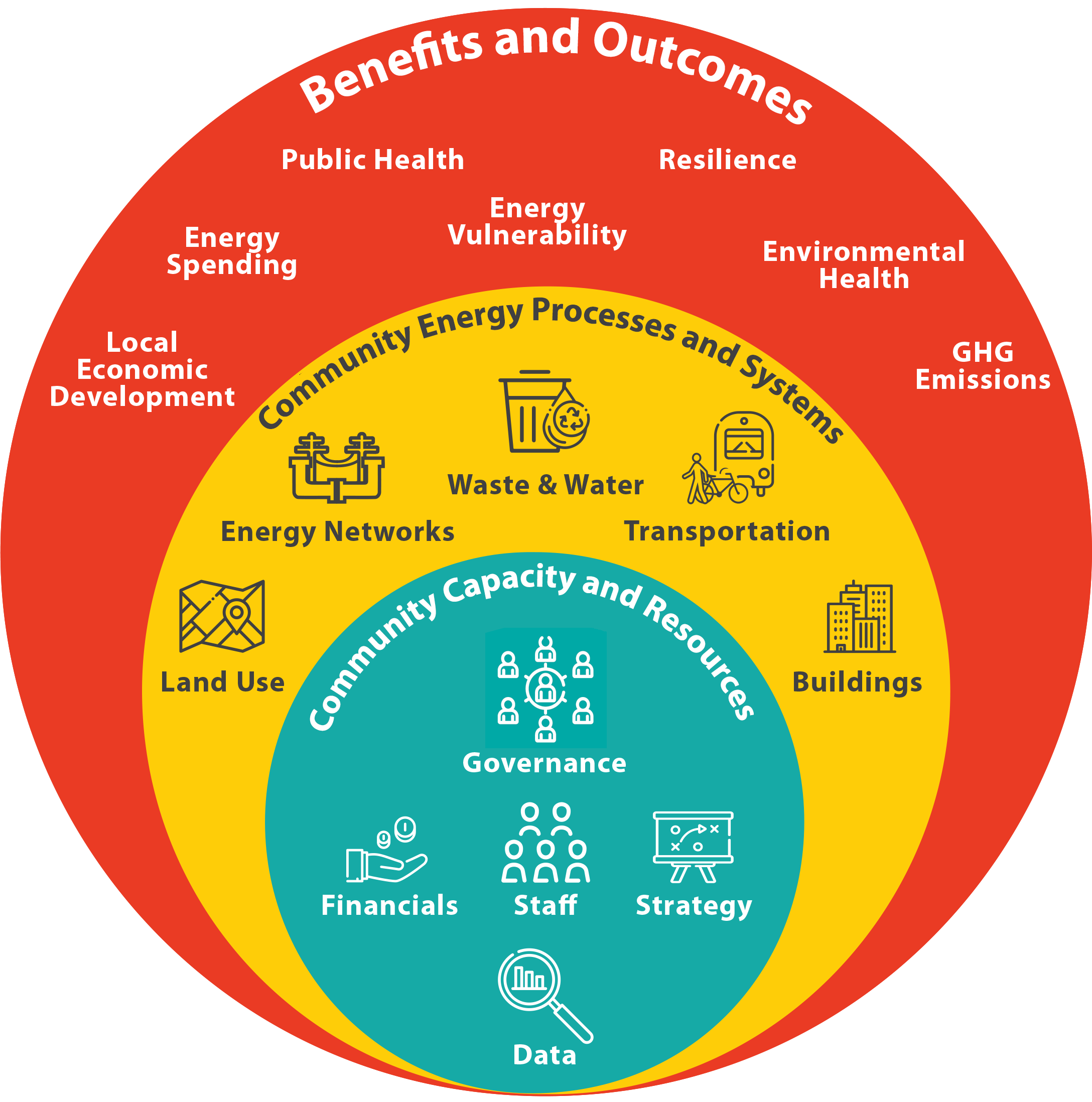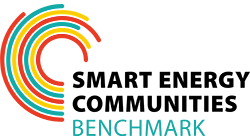Is Your Community
Energy-Smart?
Energy-smart communities create new opportunities to benefit from local economic development, lower energy costs, a cleaner environment, and improved community resilience. The Smart Energy Communities Benchmark paints a picture of what a Smart Energy Community looks like, and provides a powerful benchmark that Canadian communities can use to track their progress on their energy-smart journey.

The Big Picture

The Smart Energy Communities Benchmark measures where a community stands relative to Canadian best practices on ten indicators that, taken together, constitute the core characteristics of a Smart Energy Community.
Each of Canada’s 2,000+ communities are unique and the Benchmark was designed to adapt to local contexts. It is a personalized measure for each individual community, as opposed to being a direct comparison of how one community is doing as compared to another.
Local governments and utilities can use the Benchmark to show elected officials, stakeholders, and citizens where they are making headway on becoming a Smart Energy Community and where opportunities remain. Not only does the Benchmark help communities reach their energy-smart goals, but it provides resources to help communities increase their progress over time.
Indicators
The Benchmark is made up of ten indicators and a scoring framework designed to measure and track the progress of a community’s energy-smart journey. The first five identify the local capacity and resources that need to be in place, and the second five describe the effective management and integration of infrastructure to use, move, and source energy as efficiently and locally as possible.
Together, the indicators and scoring framework create a clearer picture of what a Smart Energy Community looks like, and provide a powerful benchmark that communities across Canada can use to track their progress on becoming one.
Governance
Staff
Data
Financials
Funding and financial mechanisms support local energy objectives
Strategy
Land Use
Energy Networks
Water & Waste
transportation
Buildings
Governance
Staff
Data
Financials
Funding and financial mechanisms support local energy objectives
Strategy
Land Use
Energy Networks
Water & Waste
transportation
Buildings
The Tool
Visit the Highlights Page to see the Benchmark Assessments of our nine pilot communities.
Would you like an assessment of how your municipal and utility processes, policies, programs, and projects compare to smart energy best practices across Canada? Download the self-assessment tool below or contact us to learn how to participate in a full Benchmark assessment.
The Webinar
QUEST held a webinar on March 23rd, 2020 to present the methodology behind the benchmark, and how you can take advantage of the free self-assessment tool to assess your community or sign up for QUEST and Pollution Probe’s Benchmark program.
Check out the video below or download the webinar presentation in PDF.

